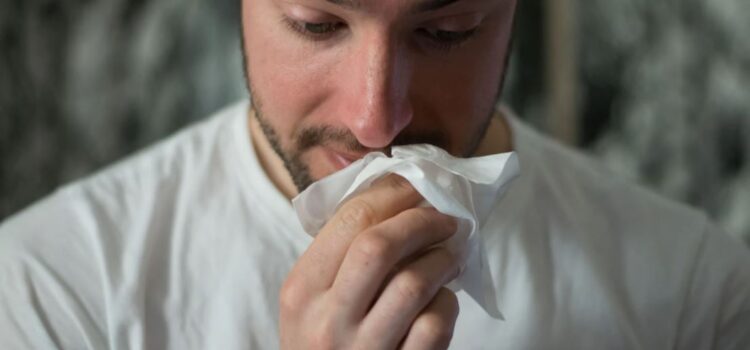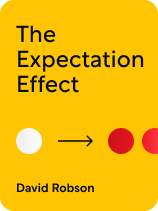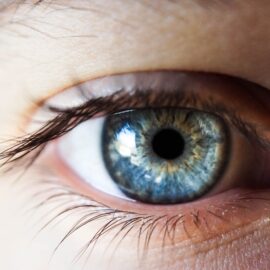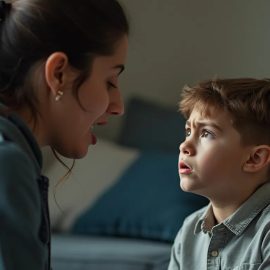

This article is an excerpt from the Shortform book guide to "The Expectation Effect" by David Robson. Shortform has the world's best summaries and analyses of books you should be reading.
Like this article? Sign up for a free trial here.
What is the nocebo effect? How can innocent expectations increase your risk of death?
Whereas the placebo effect might make you feel better, the nocebo effect does the opposite. The Expectation Effect by David Robson warns that thinking too much about a potential side effect or never-ending pain can manifest in real life.
Find out how to prevent the nocebo effect from taking over your mind.
The Nocebo Effect
What is the nocebo effect? The brain’s predictive processing also produces an expectation effect that is in many ways the reverse of the placebo effect: the nocebo effect. This effect occurs when we expect to experience a symptom or illness and then develop it. According to Robson, this isn’t a result of hypochondria and it’s not all “in your head”: An expectation of getting sick signals the brain to enact the same physiological changes brought on by a real pathogen. Scientists have even observed extreme cases where the nocebo effect increases our risk of death.
(Shortform note: Though the placebo effect is well-researched, experts say that the nocebo effect is still poorly understood. That’s in part because researching the nocebo effect comes with some complicated ethical issues: Studying people who are experiencing the nocebo effect would require researchers to induce negative outcomes, which is considered unethical.)
To avoid the nocebo effect and reduce your pain or side effects, Robson recommends a few strategies:
Put Side Effects Into Perspective
When you first hear about the side effects of a treatment, try to gauge the likelihood that you’ll experience them. Robson recommends looking up clinical trials where one group receives the treatment and another receives a placebo to see whether side effects reported with the treatment were also reported with the placebo. If the same side effects occurred in both, it might be a nocebo effect, so you don’t have to worry about experiencing them.
(Shortform note: Learning about a treatment’s side effects is difficult when the average drug lists 70 potential reactions or side effects. Most of us don’t have the bandwidth to consider, let alone research, each of those side effects. But it may help to know why those warnings are there: It’s less about the prevalence of a given side effect than it is about protection against potential lawsuits. Knowing why the warnings appear might help you guard against nocebo effects.)
Reframe Your Symptoms
Next, if you do experience side effects, practice reframing your symptoms. If you perceive them as a signal that the treatment is doing its job, you’ll be better able to tolerate the symptoms, less likely to worry about them, and perhaps even increase your chances that the treatment will be effective for you.
(Shortform note: The right mindset can help you manage any side effects you do experience with a treatment. Researchers have found that when healthcare providers reframe unpleasant symptoms as a part of the healing process, patients’ anxiety and fear of the unknown are reduced. That makes the treatment and its side effects easier to tolerate, as Robson predicts.)
Don’t Let Your Thoughts Make the Pain Worse
Finally, Robson advises that if you’re coping with pain, try to avoid “catastrophizing” thoughts about how the pain will never end. These thought patterns can create a nocebo effect and make your symptoms worse. It can help to remind yourself that the pain won’t last forever. Acknowledge negative thoughts and consider whether there’s evidence for them. If there’s not, try to change your focus to a more positive interpretation.
(Shortform note: Experts explain catastrophizing as a kind of cognitive distortion where you fixate on the pain, feel that it will never end, or think that it’s only going to get worse. They recommend becoming aware of these thought patterns and working to change them. Meditation, breathing exercises, psychotherapy, and mindfulness exercises can help you stop catastrophic thinking, as can seeking treatment for any underlying mental health and pain conditions.)

———End of Preview———
Like what you just read? Read the rest of the world's best book summary and analysis of David Robson's "The Expectation Effect" at Shortform.
Here's what you'll find in our full The Expectation Effect summary:
- Why you should rely on your body, not the universe, to make you happier
- How your brain can control your health, longevity, and quality of life
- Why you should focus on the benefits of getting older, rather than fearing it






